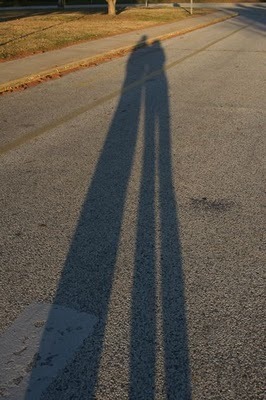Beth Kephart's Blog, page 269
December 8, 2010
We talked about a book long in the making
 Yesterday afternoon, a dear soul who read a book I've been writing for a long time called, and we talked for quite awhile.
Yesterday afternoon, a dear soul who read a book I've been writing for a long time called, and we talked for quite awhile. Those are the conversations you remember, the moments you keep—those quiet hours when you are invited to explain a scene not just for what it is on the page, word by word, the gathering of sentences, but for where it came from, what it means, how it shifted over time. Such conversations are the fires that burn, that dream you back through the story you've lived for perhaps a decade now.
I never gave up on this book, and because I didn't I had the privilege of yesterday's conversation.




Published on December 08, 2010 06:52
December 7, 2010
Into my office
Published on December 07, 2010 01:59
December 6, 2010
Of a Piece: The Teen Teach, Figment, Chasing Ray and Elizabeth Hand
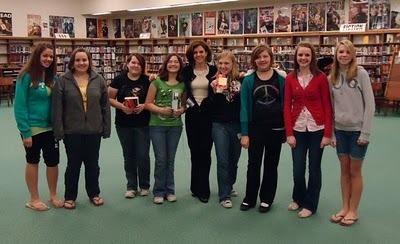 I spent much of the weekend preparing for my long morning at The Baldwin School, where I will today be talking about, reading from, and building exercises on the shoulders of Wordsworth and Mary Oliver, Sei Shonagon, Rilke, Neruda, Sandra Cisneros, Marilyn Nelson, and Gerald Stern, among others. I never conduct the same workshop twice, don't give the same talk over again, and while my husband will be the first to remind me of how terribly inefficient all that is, I know no other way. No two students or group of students are the same. It matters, I think, that we actively lean in their direction.
I spent much of the weekend preparing for my long morning at The Baldwin School, where I will today be talking about, reading from, and building exercises on the shoulders of Wordsworth and Mary Oliver, Sei Shonagon, Rilke, Neruda, Sandra Cisneros, Marilyn Nelson, and Gerald Stern, among others. I never conduct the same workshop twice, don't give the same talk over again, and while my husband will be the first to remind me of how terribly inefficient all that is, I know no other way. No two students or group of students are the same. It matters, I think, that we actively lean in their direction.The students pictured above were girls I met during my spring trip to Wisconsin for the unforgettable Fox Cities Book Festival. I was thinking about them earlier this morning, as I explored Figment.com, a new site designed to enable the young to "share your writing, connect with other readers, and discover new stories and authors." How cool, might I ask you, is this? I know dozens of young big-dreaming, risk-taking blogger/writers whose work should grace this site and whose insights could power it forward. You know who you all are.... and you know that I love you. Take a spin through Figment and let me know what you think.
And while you're at it, spend some time at Chasing Ray today, because Colleen Mondor has assembled a bang-up interview with one of my very favorite writers/people, Elizabeth Hand. I wouldn't know Liz if it weren't for Colleen. I wouldn't know a lot of things, were it not for Colleen. But listen to Liz talk, for example, about the beautiful big rawness of teens, the "thrilling and often perilous" process of self-discovery for young artists. I was cooing just this weekend about how happy the Johnny Depp-Patti Smith interview in Vanity Fair made me. Substance! I declared, I danced. Substance! I shout again today.




Published on December 06, 2010 02:49
December 5, 2010
The Depp-Smith Conversation (to die for)
 I am powerless when it comes to intelligent conversation—utterly done in when two learned, well-lived, curious people go back and forth, talking craft, talking wanting (this need I have for real conversation renders me pretty useless at most cocktail parties, I confess, an utter bore). Conversation is what we get in the January 2011 issue of Vanity Fair—Patti Smith (and you know that I loved her memoir) interviewing Johnny Depp (who needs to say more?).
I am powerless when it comes to intelligent conversation—utterly done in when two learned, well-lived, curious people go back and forth, talking craft, talking wanting (this need I have for real conversation renders me pretty useless at most cocktail parties, I confess, an utter bore). Conversation is what we get in the January 2011 issue of Vanity Fair—Patti Smith (and you know that I loved her memoir) interviewing Johnny Depp (who needs to say more?).Look at how far afield from the traditional celebrity interview this goes. Look at what Hollywood mashing with Rock and Roll can be:
Smith: When you spouted a few lines of poetry to Samantha Morton, who played Elizabeth Barry in the movie—that was my introduction to Wilmot's work, to his poetry. And I noticed in Alice, when the Hatter recites, "Jabberwocky," that you have a gift for giving us the full measure of a poet's work. It is really quite difficult. Could you imagine doing a recording of works of poetry?
Depp: I don't know. It's daunting, because you don't know exactly... I mean, you can decipher the intent, and you can kind of swim around in the guts of it, but you just don't know how the poet would have wanted it read.
Smith: Yes, but that's no different than Glenn Gould having to anticipate how Bach would want his work played. I thought the Hatter's reading of "Jabberwocky" was luminous. Yesterday you read me a poem written by the Elephant Man. I didn't know he wrote poetry. The poem you recited was heartbreaking. How did you come to find it?
Depp: I made an appointment at the hospital where they had his remains....




Published on December 05, 2010 05:03
December 4, 2010
Unassailable: Reiko's Poem
 My friend, Reiko, a novelist and memoirist, lost her mother too recently, and every day when I wake up, I think of her. Today I remember this poem I wrote for Reiko years ago. Both of us, then and now, undone and remade by the desire to remember.
My friend, Reiko, a novelist and memoirist, lost her mother too recently, and every day when I wake up, I think of her. Today I remember this poem I wrote for Reiko years ago. Both of us, then and now, undone and remade by the desire to remember.@font-face {
font-family: "Times";
}p.MsoNormal, li.MsoNormal, div.MsoNormal { margin: 0in 0in 0.0001pt; font-size: 12pt; font-family: "Times New Roman"; }div.Section1 { page: Section1; }
Unassailable
From where we stood, on the castle rockOf Central Park, Harlem was as near asTwenty years ago. Everything Between then and us was green.
The pond turtles were stacked up like stonesOn stones. The trees were a day awayFrom shucking their own shells.The red wing of a black bird was like a handThat had been dealt, and we were the splendorSight we had given ourselves.
Afterward, it was Amsterdam to Broadway,Columbus Circle down to the sweetRemembered squalor of Times Square,And on every corner: Song.The high hollows of the Peruvians,The mesquite of a jazz trombone,The Mennonites in hairnets and black sneakers.
I wondered later whether we had become The engine of concatenation, Two women made radical
With unappeasable want, The unassailable desire to remember.




Published on December 04, 2010 07:05
December 3, 2010
Self-portrait with son
Published on December 03, 2010 05:18
December 2, 2010
I have written
 ... the first full page of a new novel.
... the first full page of a new novel.I had not started on something utterly new in at least three years.
I was afraid I had forgotten how.
A first page is a stake in the ground, is all.
A first page says anything is still possible.




Published on December 02, 2010 12:58
Vanishing Point/Ander Monson: Reflections
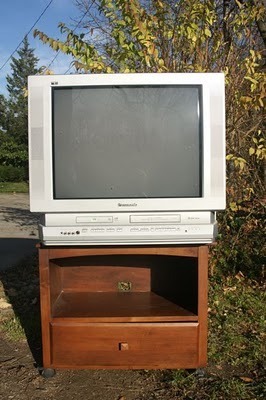 "Am currently in the middle of Ander Monson's VANISHING POINT," Carl Klaus wrote to me, a few weeks ago, "and find it such a venturesome work of literary nonfiction that I think it might be of considerable interest to you and your students." Since Klaus is himself the author of the venturesome The Made-Up Self, not to mention the founding director of the University of Iowa's Nonfiction Writing Program, I didn't much hesitate in making my purchase. Yesterday and early today I've been reading Monson's essays (a Graywolf publication) through.
"Am currently in the middle of Ander Monson's VANISHING POINT," Carl Klaus wrote to me, a few weeks ago, "and find it such a venturesome work of literary nonfiction that I think it might be of considerable interest to you and your students." Since Klaus is himself the author of the venturesome The Made-Up Self, not to mention the founding director of the University of Iowa's Nonfiction Writing Program, I didn't much hesitate in making my purchase. Yesterday and early today I've been reading Monson's essays (a Graywolf publication) through.It's interesting stuff—quotable, inventive, daggered, asterisked, me-dominating and me-avoidant, not quite memoir, though Monson himself would be the first to count all the sentences beginning with (or featuring) that wily single letter "I." Monson, like Klaus, like many of us teaching and writing personal pieces today, is full of rue and half-steps, full of self-disclosures that may or may not reveal the actual self. Full, most of all, of the questions: Can the actual self be revealed? Can the we be known? Is the I a reliable story? (Not a bankable story; that question, in the wake of so many bestselling memoirs, does not have to be asked.)
Monson is thinking out loud, in these pages, about truths and dares, about how the technology we write with may or may not shape what we write. He is thinking about solipsisms and (magnificently) assembloirs, and he gets us thinking, too. Perhaps the most powerful pages of this book are Monson's asterisk asides. For example:
If we choose to represent our lives as story, it's no surprise that our stories converge, that we all want highs and lows, the reckonings with our pasts and flaws and loves that we are otherwise incapable of in real life. Maybe we are the same, we are telling ourselves, no matter how much we try to invent our way out of this, and that's the thing we can't stand to hear or know.
I also like this:
The snap of art onto life is bothersome, too, a delinquent, a troubled fit.What do we teach young writers, I kept wondering as I read, about truths and dares? How do we talk about the flawed veracity of the assembled self without turning each and every one of them either to despair or to some version of David Foster Wallace (not that he was a bad thing, of course, but he was and should remain his own one thing)? I want to speak honestly, want to teach truly, want to leave my students with something that means something.
Monson—playfully, insistently, self-defeatedly, self-aggrandizingly—puts even more at stake.




Published on December 02, 2010 05:08
December 1, 2010
How Smart are Younger Readers? I Can't Count the Ways
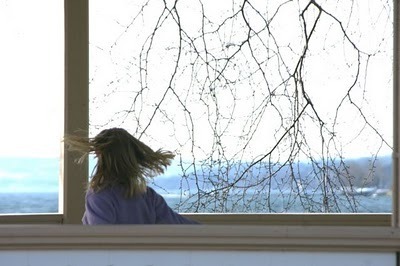 Over the course of the last several weeks, I've been interviewed by two high school journalists (Cat Mosier-Mills and Lavi Ben-Dor) as well as a university student (Rosella Eleanor LaFevre) about Dangerous Neighbors and the writing life.
Over the course of the last several weeks, I've been interviewed by two high school journalists (Cat Mosier-Mills and Lavi Ben-Dor) as well as a university student (Rosella Eleanor LaFevre) about Dangerous Neighbors and the writing life. It has been, above all else, an honor.
I've been asked questions that no one else has ever asked me. (Did you intend [the battle between the twin sisters] to represent the battle of past and future, old and new?) I've been forced to explain nuances in my novel that few others have noted. (Where does Katherine's sense of right and wrong, of impropriety, come from?) I've been required to articulate (in actual human speech) the dreamy things that typically move untethered through my thoughts. (What is the significance, to you, of birds?) And I have been so very moved and impressed by the results.
Late last night, Lavi Ben-Dor, a ninth grader at Conestoga, wrote to say that his piece had recently been published in Spoke, the school newspaper, and could be found on-line. I share his piece with you today, because Lavi, like Cat and Rosella, represent the best of the next generation.
We clearly have a lot of good to look forward to.
Over the next few weeks, I'll be spending time with the students of Baldwin School, T/E Middle School, and Norristown High School. It will, I know, be an adventure, and they'll teach me more than I will ever be able to teach them.




Published on December 01, 2010 04:44
November 30, 2010
Towering Books
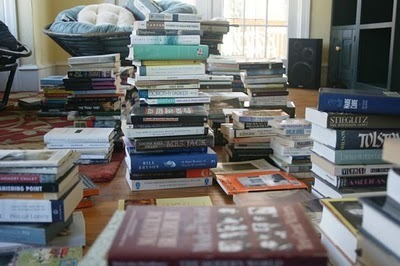 We had to move four of our 14 bookshelves ten inches west. I had cleared but two of them and stepped back when I felt a wave of—despair? gluttony? overwhelm? joy? Yes, I knew I had been triple stacking my books. Yes, I knew that there were plenty of them, that every month or so I am compelled to donate a dozen or more to my local library, and still I navigate book spill.
We had to move four of our 14 bookshelves ten inches west. I had cleared but two of them and stepped back when I felt a wave of—despair? gluttony? overwhelm? joy? Yes, I knew I had been triple stacking my books. Yes, I knew that there were plenty of them, that every month or so I am compelled to donate a dozen or more to my local library, and still I navigate book spill.Still, seeing a mere fraction of my total books out there, like this, on the floor produced in me a desire to go get some air. I opened the front door. I looked down at the stoop. There sat a box of ten brand new books, all sweetly wrapped and virgin.
Call me what you will, but at least there's this: I put my money where my mouth is, when it comes to books. I buy because I love these things, and because buying helps keep my industry alive.




Published on November 30, 2010 05:36




